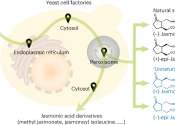Researchers develop software with enhanced genome-sequencing powers for better plant breeding
A new software tool with enhanced genome-sequencing powers has been developed by the University of Adelaide, increasing the speed and accuracy at which researchers can improve plants through breeding.









